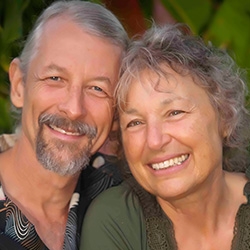

Search Results: needs
-
Trainer Tip: Stating our observations, feelings and needs can still be heard as criticism if we don't follow it up right away with a specific, doable request. Ending your statement with a request for what you want can clarify the situation and reduce the chances that you'll be met with defensiveness. Read on for an example.
-
Use NVC and mediation tools to transform conflict into authentic connection.
-
Miki works with a course participant to transform begrudging attendance at a mandatory meeting into the possibility for collaboration, more connection where little is expected and focus on clarity of purpose for meeting in the first place.
-
Discover why empathy is a vital workplace skill, boosting productivity and collaboration.
-
When a relationship has both differentiation and bonding you can express differences and unmet needs, and responsibly do your own thing without it being a threat to the bond with another. You honor each others choices. There's trust rather than a sense of resentful obligation. Needs-based negotiation is easier. See if you tend to emphasize only differentiation or bonding in your relationships. Imagine how to support the opposite.
-
Trainer Tip: When someone is unresponsive it can be an opportunity to bring in more presence and connection through empathy. They may be worried that if they speak they'll say something they'll regret. Or they may want to know that their needs matters as much as yours. They may also need more space to clarify their thoughts.
-
Ingrid guides parents to navigate everyday parenting challenges using the NVC model, such as the behavior of a frustrated child, a messy room, transition times and a child who collapses when things don't work out as she had hoped.
-
Learn to foster trust, peace, and cooperation in your family using Nonviolent Communication.
-
Deepen your empathic presence with Raj and Mary, for those with basic understanding of NVC.
-
Balance self-passion and compassion with NVC tools to stay empowered and honor your own needs.
-
Master the conversational dance through real-life NVC role play, modeling, and dialogue practice.
-
Strengthen empathy, goodwill, and authenticity at home, meeting life's challenges with grace.
-
Trainer Tip: Anger can be an opportunity to hear the "Please" behind the words and create a path to resolve conflicts compassionately.
-
Make NVC feel natural and authentic with intuitive tools for connection and everyday integration.
-
Transforming anger is a key practice for returning to conscious presence and connection with self and others when triggered into a reaction. Join John Kinyon to learn this essential life skill through the Enemy Image Process and Learning/Growth Spiral.
-
Trainer Tip: It's impossible to value other people’s needs and remain compassionate if we simultaneously harbor judgments. If we're willing to shift this behavior we can translate our judgments into acknowledging how something affects us. Once I got into the habit of this, my judgments began to subside dramatically. It became easy to love people and feel compassion for them, and I experienced a freedom I had never known before.
-
Trainer tip: Empathy is about being present to a person’s feelings and needs. It is acknowledging another’s experience, not necessarily agreeing with it. If you have a different opinion than another, empathize with her first. Then, state your feelings and needs with regard to the situation.
-
Trainer Tip: When looking for a solution take the time to consider and connect to other's needs rather than just focusing on getting what you want. Such a basic shift in consciousness can make a profound difference in your relationships, both personal and professional. Notice how you feel afterward.
-
Trainer Tip: When they say "no", acknowledge what people are saying "yes" to. From there, you persist towards a resolution that values both party's needs, without demand. Persisting is when we try to meet needs by continuing to connect with another. Demanding is when we insist someone do something, or else face negative repercussions. Showing care and willingness to work with people can help them to want to collaborate and resolve conflict.
-
Trainer Tip: Requests include a specific action to help us get our needs met. If we have a complaint or in conflict, and we don’t make specific requests, people are left guessing and/or wondering about what will meet our needs. Our chances for getting our needs met can then become limited. Instead, try ending with a request to let the other person know exactly what you would like to happen.

Quick Links
Subscription Preferences
Stay In Touch!
Looking for ways to keep up with NVC Academy news, get special offers, free resources, or words of inspiration? Here are five ways to stay engaged:




















